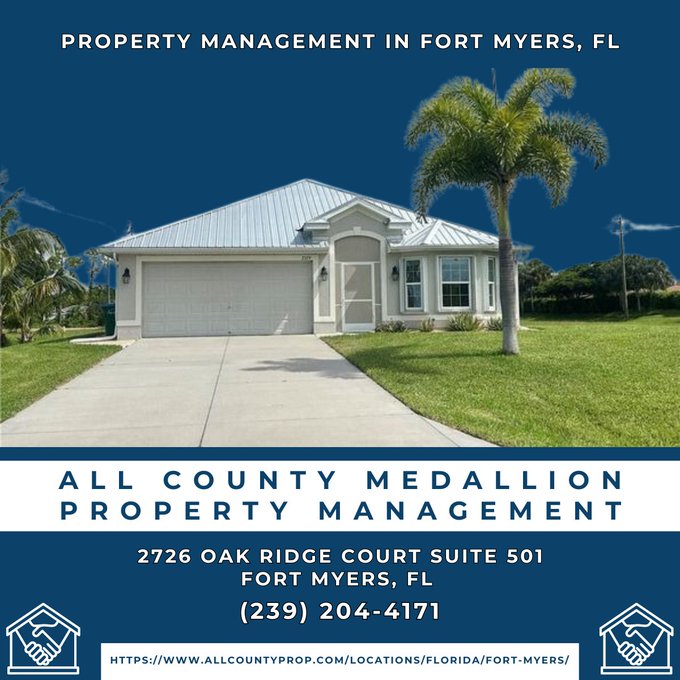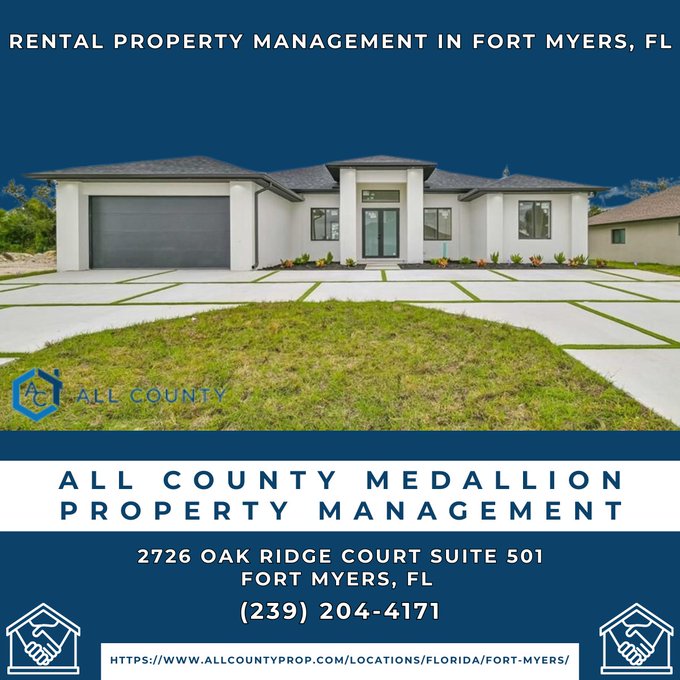Introduction
Navigating the world of property management can often feel like traversing a labyrinth. With so many options available, property owners frequently find themselves at a crossroads: should they choose a local property management company or one that operates on a national scale? This question isn't just about geography; it's about understanding the nuances of service quality, fee structures, and the overall effectiveness of management strategies.
In this comprehensive guide, we will explore the advantages and disadvantages of both local and national property management companies. Additionally, we will delve into relevant topics such as average fees, licensing requirements, and what to expect in terms of service quality. Whether you're a seasoned investor or a first-time landlord, this article aims to equip you with the knowledge necessary to make an informed decision.
Understanding Property Management
What is Property Management?
Property management refers to the operation, control, and oversight of real estate properties on behalf of their owners. This can include residential properties like single-family homes and apartments as well as commercial properties such as office buildings and retail spaces. The primary responsibilities typically involve leasing units, collecting rent, handling maintenance requests, and ensuring compliance with local laws.
Why is Property Management Important?
Managing properties effectively can significantly impact an owner's bottom line. A skilled property manager will not only help maintain the value of your investment but also maximize rental https://maps.app.goo.gl/JMBvLxZZSK4accd17 income through strategic marketing and tenant retention efforts. They serve as the intermediary between landlords and tenants, addressing concerns promptly to foster a positive living experience.
Choosing Between Local vs National Property Management Companies
When it comes down to selecting a property management company, geographical reach can play a pivotal role in defining your experience. But how do local companies stack up against national ones? Let’s break it down.
Local Property Management Companies
1. Personalized Service Local property managers often provide tailored services that cater specifically to their community's needs. They are usually more accessible for face-to-face meetings and have an intimate understanding of the local market dynamics.
2. Knowledge of Local Laws Each state has different regulations surrounding property management. Local companies are more likely to be well-versed in Florida laws regarding tenant rights, eviction procedures, and lease agreements.
3. Community Connections Often rooted in their communities, local managers may have established connections with contractors, maintenance personnel, and legal advisors that can facilitate quicker resolutions for issues that arise.
National Property Management Companies
1. Scale and Resources National firms often have greater resources at their disposal—think advanced technology platforms for tracking payments or managing maintenance requests across multiple locations.
2. Standardized Procedures With national companies comes standardized processes that can deliver consistent service quality regardless of where your property is located.
3. Brand Recognition Having a reputable name behind your property can attract high-quality tenants who may prefer renting from well-known brands over local entities.
Average Property Management Fees in Florida
What is the Average Property Management Fee in Florida?
The average fee for property management services in Florida varies but typically ranges from 8% to 12% of the monthly rent collected. Factors influencing these rates include:
- Property Type: Single-family homes may have different rates than multi-family units or commercial properties. Services Provided: Additional services like marketing vacancies or handling evictions can also affect pricing. Market Conditions: In highly competitive markets like Miami or Orlando, rates might trend higher due to demand.
Common Payment Structures in Property Management
What is the Most Common Payment for a Property Manager?
Most commonly, property managers charge a monthly fee based on a percentage of the rent collected—usually somewhere between 8% to 10%. However, some may also charge flat fees that range from $100-$300 per month depending on various factors including location and complexity of services rendered.
What Percent Do Most Property Management Companies Take?
Typically ranging from 8% to 12%, most property management companies will take about 10% of monthly rental income as their standard fee structure.
Understanding Licensing Requirements in Florida
Do I Need a License to Be a Property Manager in Florida?
Yes! In Florida, anyone who manages rental properties must hold either a real estate license issued by the Florida Department of Business & Professional Regulation (DBPR) or work under someone who does hold one.
Can I Manage My Own Property in Florida?
Absolutely! If you're managing your own rentals without engaging others—like hiring another individual or company—you don't need any special licensing beyond what’s required for ownership itself.
Exploring Job Opportunities: Who are the Top 10 Property Management Companies?
If you’re considering getting involved with larger organizations—or perhaps just curious about who’s leading the pack—here’s an overview:
| Rank | Company Name | Headquarters | |------|---------------------------------------|---------------------------| | 1 | Greystar | Charleston, South Carolina | | 2 | Cushman & Wakefield | Chicago, Illinois | | 3 | CBRE | Los Angeles, California | | 4 | Colliers International | Toronto, Canada | | 5 | Lincoln Property Company | Dallas, Texas | | 6 | Alliance Residential | Austin, Texas | | 7 | RPM Living | Dallas/Fort Worth area | | 8 | Invitation Homes | Dallas/Fort Worth area | | 9 | Equity Residential | Chicago area | | 10 | Apartment Investment and Management Co.| Baltimore area |
These companies have established themselves through years of experience while offering diverse portfolios across various states—including sunny Florida!
Factors Influencing Demand for Property Managers in Florida
Why is There High Demand for Property Managers in Florida?
The demand for property managers has surged due to several interrelated factors:
1. Population Growth
Florida consistently ranks among the fastest-growing states in America due to its favorable climate and economic opportunities which attracts new residents each year—from retirees seeking warmer weather to families relocating for job prospects.
2. Rising Rental Rates
With increasing housing prices across many cities within Florida comes elevated rental costs prompting more landlords needing assistance managing their properties effectively—thus spurring demand for professional help!
3. Investment Opportunities
Real estate investments continue gaining traction among individuals looking for passive income streams; therefore increasing urgency around employing efficient management solutions becomes crucial!
Common Compensation Questions About Property Managers
How Much Does A Certified Property Manager Make In Florida?
On average—certified property managers earn around $55k per year depending on experience levels/portfolio size varying from $40k up toward $80k+ annually when managing larger complexes/aircraft hangars etc…
What is A Good Management Fee?
A good management fee could be anything falling within typical ranges (8%-12%). Remember though: lower isn't always better! Quality service sometimes requires spending slightly more upfront if it results long-term gains through effective strategies implemented!
Hourly Rates & Additional Fees
What is The Hourly Rate For A Property Manager In Florida?
While most fees are structured monthly based upon percentages; hourly rates might vary widely based upon specific project scopes ranging anywhere from $50-$150/hr depending upon expertise level/specializations held by particular professionals engaged!
Types Of Fees Structure
What Are The Three Types Of Management Fees?
Percentage-Based Fee Flat Rate Fee Leasing FeeDepending upon circumstances/variety offered—all three types generally come into play during negotiations between landlords & respective firms hired thereafter; ensuring clarity beforehand helps avoid misunderstandings!
Is A 1% Management Fee High?
Generally speaking—a 1% management fee falls below industry standards making it quite rare unless circumstances dictate otherwise (e.g., low operating costs).
Sales Tax Considerations
What Is The Sales Tax On Property Management In Florida?
In Florida—the sales tax rate applied specifically towards these services hovers around six percent (6%) which must be acknowledged when budgeting overall expenses incurred throughout each fiscal period managed accordingly by chosen providers selected thereafter!
Regional Variability
How Much Is The Average Property Management Fee In Texas?
In Texas—the average rate fluctuates between eight percent (8%) up toward ten percent (10%) reflecting similar trends seen across other markets nationwide depending primarily upon overall demand/economic conditions prevailing therein!
What Is The Average Payment For A Manager In Arizona And Georgia?
Arizona averages hover around ten percent while Georgia remains closer towards nine percent indicating slight regional variations influenced largely via localized economies established alongside respective jurisdictions nationwide impacting pricing structures accordingly!
Household Responsibilities & Expectations
What Is The Biggest Responsibility For Property Managers?
Arguably—the biggest responsibility rests heavily within maintaining tenant satisfaction alongside ensuring compliance with all pertinent regulations governing respective properties managed thereafter! Failure here could lead directly into costly litigation scenarios creating headaches best avoided altogether whenever possible ensuring proactive measures implemented appropriately beforehand mitigating risks encountered along way successfully!
Industry Giants & Market Leaders
Who Is The Largest Property Manager In The US?
Greystar currently holds title as largest player within industry boasting extensive portfolio comprising thousands residential units nationwide thereby cementing status firmly atop competitive landscape observed today continuing expand presence further still upward trajectory projected going forward increasingly evident moving forward ahead!
Rental Dominance
***What Company Owns The Most Rental Properties Globally And Locally Within United States Specifically?
Invitation Homes leads charge owning upwards near eighty thousand homes across US highlighting vast scale operations maintained locally nationwide reflecting robust growth strategy focused maximizing revenue streams efficiently designed achieve long-term success sustainably achieved consistently thereafter!
Conclusion
When deciding between local vs national property management companies it ultimately boils down personal preferences dictated by unique situations faced alongside individual expectations desired throughout entire process engaged thus far ahead.Finding right fit essential ensure smooth sailing journey embarked successfully onward navigating complexities inherent within respective landscapes encountered along way together facilitating prosperous outcomes achieved collectively moving ever forward.Taking time consider variety factors mentioned herein vital navigating maze experienced throughout securing best possible solutions tailored accordingly enhancing experiences enjoyed thoroughly enriching lives improved substantially every step taken along this fulfilling journey embarked together ultimately leading towards brighter horizons awaiting ahead just beyond reach!

